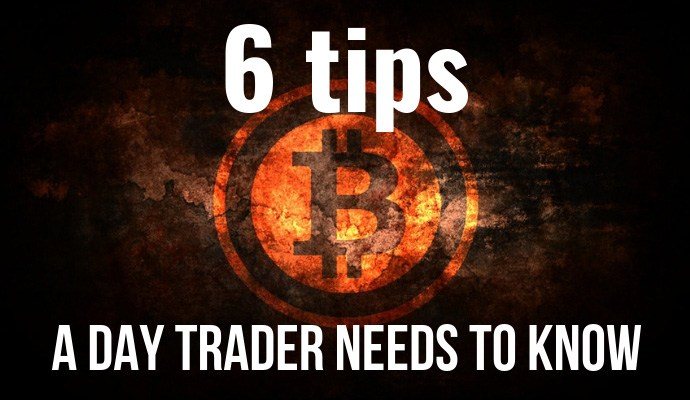Diving headfirst into the world of day trading, you're bombarded with advice. Every blog and forum seems to have a golden rule or a fail-safe strategy that promises the moon. But here's the kicker: a lot of that advice out there? It's not just off the mark - it's dead wrong. And I've got the trading scars to prove it.
From personal experience, I've learned that the market is more unruly than any of these "experts" account for. You can't just follow a set of tips and expect to strike it rich. It's not a cookbook; it's the wild west. The rules that supposedly guarantee success often ignore the unpredictable nature of the markets and the unique style of each trader.
What worked for someone else might be your ticket to a downfall. I'm here to tell you the unvarnished truth about day trading, sans the sugarcoating. Let me tell you. I'm about to get real with what works and what doesn't - straight from the trenches.

#1 Trade The Most Popular Cryptocurrencies? Forget It!
Trading cryptocurrencies has been on the increase in the recent past. There are different cryptocurrencies that you can trade in. Make sure that the cryptocurrencies you choose to invest in are those that have a lower spread and ones that will ensure your chances of making a profit are granted. More widely traded cryptocurrencies move quickly and can be predicted just like fashion.
Some of the major traded cryptocurrencies include Bitcoin, Eherium, Litecoin, and Ripple. In most cases, you can find very many trading opportunities in just one currency. This means that you do not need all of them for you to be successful. Just concentrate on one or two of them.
Why I Steer Clear of Popular Cryptos
Everyone and their dog seems to be talking about cryptcurrencies. But me? I’m not on that bandwagon, and I'll tell you why.
The Roller Coaster of Prices
First off, the price volatility is a wild ride that I'd rather not be on. You wake up, and Bitcoin's up 10%. By lunch, it's down 15%. Makes your head spin, doesn't it? Sure, some folks have the stomach for this kind of adventure. But me? I prefer keeping my lunch down, thank you very much.
The Hype Train is Overcrowded
And then there's the hype. When something is as popular as Bitcoin, you’ve got too many people jumping in for a quick buck. They pump up the price, only to ditch it when they've made their fortune. This leaves the rest of us holding the bag, and it's usually not filled with cash, right?
Security Concerns
- Exchange hacks: Big names attract big targets. Exchanges holding popular cryptos have been hacked before. My luck, I’d invest, and some hacker would make off with my stash the next day.
- Scams: Scammers love to use the allure of well-known cryptos to trick new traders. I like to keep my money, not donate it to a scammer’s “Get-Rich-Quick” fund, you know?
FOMO is Real
Fear of missing out, or FOMO, is a powerful thing. It's like when everyone's buying those sneakers you see everywhere. But just because they're popular doesn't mean they're a good fit for everyone, right? With crypto, when you buy because of FOMO, you're not investing; you're gambling. And I'm not too keen on betting my hard-earned money on the latest trend.
Did You Know You Already Have A LOT To Sell?
So What's Your Problem?

My Two Satoshi on the Matter
Sure, there’s money to be made in popular cryptos. I've seen friends make a pretty penny, but I've seen others lose their shirts. And taxes? Don't get me started. The tax headache of capital gains on crypto can be a nightmare. They don't tell you that when you're signing up, do they?
Alternatives I Explore
Instead of chasing the big names, I look into other avenues:
- Stablecoins: These don't swing wildly. They're tied to actual assets like the dollar, so they're, well, stable.
- Niche cryptos: Smaller, less popular coins related to projects I believe in or find useful. It’s a bit of research, but who doesn't love a good treasure hunt?
- Tech, not tokens: Sometimes investing in the technology behind cryptocurrencies can be just as rewarding, minus the roller coaster.
I'm in no rush to join a fad just because everyone else is. Sure, the fear of missing out can be tempting, but peace of mind? That's priceless, right? I'll stick to my less glamorous but steadier investments. They might not make me a millionaire overnight, but I'll sleep better, and isn't a good night's sleep worth its weight in Bitcoin?
#2 Trade With A Favorable Risk To Reward Ratio

One of the main challenges that traders face is the transaction costs. At times you might think that you are making a profit but end up to paying amounts of costs in transactions. As a day trader, it is almost certain that you are paying higher costs than long-time traders.
This is because you make lots of smaller trades meaning that you are investing in and out more frequently. It is also important to take note of the commission that the broker or your exchange charges for each thread.
If you are not careful you might get out of trade thinking that you made a profit. When you combine all the smaller losses together at the end of the day you realize that you have made a huge loss.
It is also important for a trader not to risk a huge amount of money especially when it's almost certain that the amount of profit you make is not significant. Instead, you can select trades that you are sure can make at least 10 to 30 pips. In order to make sure that you are not making losses as a result of transaction costs your winning should be larger than the losses you make on the trades.
Taking Chances on Risky Trades
Trading with a favorable risk to reward ratio? Not my cup of tea. I mean, you've heard that old saying "high risk, high reward," right? Well, I reckon they left out the part about "high chance of a high loss." I've been around the block, tried my hand at the game, and let's just say my wallet's been on a diet ever since.
Playing It Too Safe Can Hurt
I know what you're thinking: "But playing it safe is smart, isn't it?" Sure, I used to play it safe, sticking to trades where I thought I could lose a tiny bit to make a ton. Sounds great on paper. But the truth is, those "safe" trades didn't pay off as often as I'd hoped. The wins were too small and didn’t happen enough to cover the losses.
Learning the Hard Way
Here's a little story from my trading diary:
- The ‘Sure Thing’: I once put a chunk of change into what I was convinced was a no-lose trade. The ratio was skewed so much in my favor, I was already spending the profits in my head.
- The Reality Check: Turned out, the market had other ideas. My 'sure thing' tanked, and my investment with it.
Man, did that sting. And it taught me that favorable ratios can be like mirages in the desert, you know?
Missed Opportunities
Chasing favorable risk to reward ratios means missing out on some golden opportunities. Sometimes, the best trades are the ones that don't look so hot at first glance. They've got teeth, sure, but they can also have the biggest potential. And I had to watch those chances pass me by because I was too busy hunting for the 'perfect' trade, right?
The Allure of Big Wins
Let's not kid ourselves, the thought of landing a huge win with minimal risk is tempting. We all want that lottery ticket trade that'll set us up for life. But finding those is like finding a needle in a haystack. I realized I might be waiting forever.
What I Do Instead
So, how do I trade now? A bit differently:
- Calculated risks: I look for trades where the risk is reasonable, not just minimal.
- Diversification: Putting eggs in different baskets means I don’t need every trade to have a crazy good ratio.
- Learning to lose: Accepting that losses are part of the game means I can handle taking hits better.
Keep It Real
In the end, I've found that chasing the perfect risk to reward ratio is a bit like chasing rainbows. Looks pretty from a distance, but up close, it's not quite what you expected, right? I’d rather take a solid chance than wait for a perfect one that might never show up. Sure, I might miss out on some 'safe' bets, but I’ll catch more of the real opportunities — and that’s what trading’s all about.
#3 Overtrading Isn't Always Bad
Some traders are tempted to tread just because they are bored or in some cases, they are not patient enough. It is important to make sure that you are trading at the right time and when your mind is clear. Set a timeline and a timetable of when and how to trade.
Always remain patient because there are many trading opportunities with cryptocurrencies. The market changes from time to time so trade when the market is right and when there are lots of opportunities. Always have a sharp eye and look out for such opportunities.
But Overtrading? Not in My Book
Let me tell you, the fear of overtrading doesn't really keep me up at night. I've met traders who treat overtrading like it's the boogeyman, lurking in the shadows, ready to gobble up their profits. But me? I see it a bit differently.
Loving The Market's Pulse

When the market's buzzing, I'm there, right in the thick of it. Some folks like to dip their toes in, maybe make a trade or two then call it a day. But what if the market's handing out opportunities left and right? Sitting on your hands could mean missing out, don't you think?
Keeping Cool Amidst the Chaos
Now, don't get me wrong, I'm not clicking 'buy' and 'sell' like a person possessed:
- Sticking to the plan: I’ve got my strategies, and I stick to them. They’re my anchor.
- Setting limits: I know my limits and check myself before I wreck myself, so to speak.
Staying disciplined is the name of the game, right?
Learning by Doing
Here's the thing about trading — it's as much a skill as it is an art. And how do you get better at something? Practice, practice, practice. Sure, overtrading can be a risk if you're throwing caution to the wind. But if you're making informed decisions, isn't each trade adding to your experience bank?
Rolling With the Punches
I've had my share of losses; who hasn’t? But each loss teaches me something new. It’s all about:
- Adapting: When a trade goes south, I learn and adapt.
- Resilience: Getting knocked down isn't fun, but getting back up again? That's where growth happens.
You've got to roll with the punches, don't you?
When Opportunity Knocks
The market doesn't ring a bell when it's time to trade — it's on you to answer the door when opportunity knocks. I trade when I see a chance for profit, not just when someone says it’s enough for the day.
My Trading Philosophy
So here's how I look at it:
- Balanced approach: I trade enough to keep growing but not so much that I lose focus.
- Self-awareness: Knowing my motives for each trade keeps me from slipping into the overtrading trap.
- Enjoying the ride: Trading's a bit like surfing; ride the waves when they come, but always be ready to paddle out.
Keep Calm and Trade On
In the end, trading's about finding your rhythm. Some might say I overtrade, but I call it being in tune with the market's tempo. I keep my wits about me, make decisions based on logic, and don't let fear dictate my trades. Isn’t that what it’s all about — staying level-headed, making the moves that work for you, and enjoying the hustle along the way?
#4 Don't Always Focus On Long-Term Trading Trend

It is possible to make profits by buying and selling cryptocurrencies over a long period of time. For instance, you can trade in a 30-minute time frame. Do not be discouraged just because the treads are moving up and down every day. In the long run, opportunities will be favorable as time passes.
Most traders are hungry to make quick profits. These are the traders that other investors focus on. Any simple mistake means that you are accruing your losses. At the end of the day, you find that you have not made a profit from your trades.
Short-Term Trades Over Long Hauls
When it comes to trading, some folks are marathon runners, but me? I'm more of a sprinter. Long-term trading has its fans, sure, but I’ve always felt more at home with the quick pace of short-term trades.
Instant Gratification vs. Patience
Waiting years for a payoff? Not my style. I like to see results, and I like to see them now. You get that buzz when a trade goes your way, and it's almost immediate. Plus, there's something to be said about having your cash ready for the next big opportunity, right?
Riding the Waves
Markets are like oceans — always moving. Long-term trading means you're more like a cargo ship, slowly making your way across. Me? I prefer to surf the waves:
- Agility: I can move in and out of positions fast.
- Adaptability: When the market shifts, I can shift right along with it.
Isn't flexibility a great thing to have in your trading toolkit?
The Thrill of the Trade

It is possible to make profits by buying and selling cryptocurrencies over a long period of time. For instance, you can trade in a 30-minute time frame. Do not be discouraged just because the treads are moving up and down every day. In the long run, opportunities will be favorable as time passes.
Most traders are hungry to make quick profits. These are the traders that other investors focus on. Any simple mistake means that you are accruing your losses. At the end of the day, you find that you have not made a profit from your trades.
Short-Term Trades Over Long Hauls
When it comes to trading, some folks are marathon runners, but me? I'm more of a sprinter. Long-term trading has its fans, sure, but I’ve always felt more at home with the quick pace of short-term trades.
Instant Gratification vs. Patience
Waiting years for a payoff? Not my style. I like to see results, and I like to see them now. You get that buzz when a trade goes your way, and it's almost immediate. Plus, there's something to be said about having your cash ready for the next big opportunity, right?
Riding the Waves
Markets are like oceans — always moving. Long-term trading means you're more like a cargo ship, slowly making your way across. Me? I prefer to surf the waves:
- Agility: I can move in and out of positions fast.
- Adaptability: When the market shifts, I can shift right along with it.
Isn't flexibility a great thing to have in your trading toolkit?
The Thrill of the Trade
There’s a thrill in the fast-paced world of short-term trading. The rush of making a well-timed trade is something else. It’s like hitting a home run, you know?
Lessons Learned Quickly
Mistakes? I've made them. But I learn from them fast:
- Immediate feedback: I see what works and what doesn't, often by the end of the day.
- Quick adjustments: No need to wait years to figure out if a strategy is a dud.
This way, I’m always honing my methods. Keeps me sharp, doesn't it?
Keeping Up with the Times
The world moves fast, and so does information. By focusing on short-term trading, I stay up to date with the latest news, trends, and market moods. It feels good to be in the know, right?
My Approach to Trading
Here's a snapshot of how I operate:
- Daily analysis: I check out the market’s pulse every day.
- Risk management: I set strict stop losses. No room for sleepless nights over a bad trade.
- Profit taking: When I’m up, I take my profits. Waiting years for a might-be jackpot? Not for me.
Why I Skip the Long Game
So, long-term trading? I've watched friends go that route, talking about ‘the big picture’ and ‘retirement funds.’ And that's cool for them. But for me, trading's not just about the endgame. It’s about the action, the challenge, and yes, the profits that can happen right now. After all, who knows what the future holds, right?
I keep my eye on the present, and that's where I've found my success. Isn't it all about finding your niche and playing to your strengths?
#5 Don't Always Watch News And Announcements
Glued to the news? Not me. Sure, news and announcements can shake up the markets, but hanging on every word isn't my style. I've found that a little distance from the 24/7 news cycle does wonders for my peace of mind.
The Rumor Mill
You've seen it, right? The hype, the speculation—it's a 24-hour circus. And if you try to follow every bit of gossip or prediction, you'll end up on a wild ride to nowhere.
- Speculation is a gamble: Trying to predict market moves based on rumors is like betting on rain in the desert.
- News can mislead: Sometimes, what's broadcasted is already priced in by the time you hear it.
Finding My Own Rhythm
I focus on the ebb and flow of the markets, feeling out patterns and trends. It's like having your own internal compass instead of following a weather vane that spins with every news snippet. Makes sense, doesn't it?
The Stress Factor
Ever felt your heart race when breaking news hits the airwaves? It's stressful to react to every little thing. By stepping back, I've cut down on the anxiety.
- Less is more: Fewer news-induced knee-jerk reactions mean fewer stress-induced gray hairs.
- Clearer head, better decisions: With a calm mind, my trading choices are sharper, and guess what? Often more profitable too.
The Bigger Picture
Long-term trends tend to smooth out the daily noise. I've learned that markets have their own logic, and they don't always match up with the news of the day.
What I Pay Attention To
Of course, I don't have blinders on. There are bits of news that deserve attention:
- Economic indicators: Things like job reports and inflation numbers get a glance.
- Earnings reports: If I'm invested in a company, I'll check out how they're doing.
But the rest? It's just noise, right?
The Proof Is in the Pudding
I've seen my share of traders jump on a news tip, only to get burned. Me? I've stayed more consistent by keeping my eyes on the charts and my strategies, not the news ticker.
Quality Over Quantity
I choose my news like I choose my trades—carefully. Quality information over a barrage of headlines any day. That way, I stay informed without getting overwhelmed. You relate to that, don't you?
To Each Their Own
Some traders live by the news, and that's cool for them. But I've discovered that a more laid-back approach suits me better. It’s all about what works for you, isn’t it? For me, the less I get tangled up in the minute-by-minute play-by-plays, the clearer I can think, and the better I trade. Isn't trading challenging enough without adding an info overload to the mix?
#6 Don't Stick To The Rules And Even Your Strategy

Sticking to the rules is great, but where’s the fun if you never color outside the lines? In trading, just like in life, sometimes you’ve got to go with your gut.
Flexibility Is My Friend
A strategy is a good starting point, but the market is a wild beast that doesn’t always follow the path. Adapting on the fly? That’s where I thrive.
- Market moods: If the market mood swings, I might just swing with it.
- Unexpected opportunities: Sometimes a chance pops up that doesn't fit the plan, but it feels too good to pass up, right?
Rules Aren’t Everything
Sure, rules are there to keep you safe, but if I followed every single one, I'd have missed out on some golden moments.
- Breakouts and breakdowns: When a stock breaks out or down, that’s my cue. Who says you can’t take a calculated leap sometimes?
- Intuition: Call it trader's instinct, but there are moments when I just know, and that’s when I bend the rules a bit.
The Human Touch

Alright, here's the deal: Computers and algorithms are programmed to trade based on set conditions—when X happens, they do Y. It's all numbers and pre-coded strategies. But us humans? We've got something extra: instinct. We can feel the vibe of the market, the unease or the buzz that something big is about to go down, like a trader's sixth sense. This gut feeling, it's not something you can code into a computer.
When traders talk about sensing tension in the market, they mean picking up on subtle cues that hint at a potential surge or plunge in prices—a news story, a sudden change in trading volume, or just the way the market's been jittery all morning. Computers crunch data, but they can't understand these nuances or the fear and excitement behind the numbers. That's the human edge—our ability to read between the lines and sometimes get a leg up on the machines. Cool concept, right?
Strategy as a Guideline
I treat my strategy more like guidelines rather than strict laws.
- Learning and evolving: If something doesn’t work, I tweak it. That’s how a strategy evolves, right?
- Situational tactics: Each trade is unique, so I might switch things up when the situation calls for it.
When Rules Meet Reality
Sometimes the market just doesn’t want to cooperate with your strategy. That’s when I lean back and look at the big picture. There's wisdom in those candlesticks beyond what any rule book says, don't you think?
Stories Over Statistics
I’ve had my biggest wins when I listened to the story the market was telling me, not just the cold hard stats.
- Market sentiment: It can run against all logic and statistics. Feeling the sentiment means I sometimes go against the grain.
- Trader tales: Chatting with other traders gives me insights no rule book can.
Trusting Myself
In the end, it’s about trusting myself. I’ve learned the ropes, but there’s a point where you've got to sail your own ship.
- Experience: It counts for a lot. The more I trade, the more I know when to stick or twist.
- Confidence: It grows when you make those calls that no rule would endorse, and they pay off.
So, bending the rules? It’s not for everyone, but for me, it’s been the spice in the trading soup. It keeps things interesting, and let’s be honest, who doesn’t like a bit of excitement in their trades?
Conclusion
Cryptocurrency trading can be regarded as a business worth investing in. The most important thing is that you know when to invest and how to do it. Take time to learn about different strategies before implementing. It takes time to make profits via cryptocurrencies trading but the most important thing is to take the long-term approach. Always be on the lookout for popular cryptocurrencies market because they provide bigger opportunities for making a profit.
It is also advisable to carry out consultations with people who have a rich experience in trades. They can share their knowledge and skills which can be beneficial to your trading strategy. Some people trade together while others to read as individuals. Depending on what fits, you can make use profits trading online. If this post was educative kindly let us interact in the comment section below.

AshemaKevin is a Freelance writer. He covers all topics revolving around business. You can follow him on X @ashemakevin
Author // Kevin Ashema

